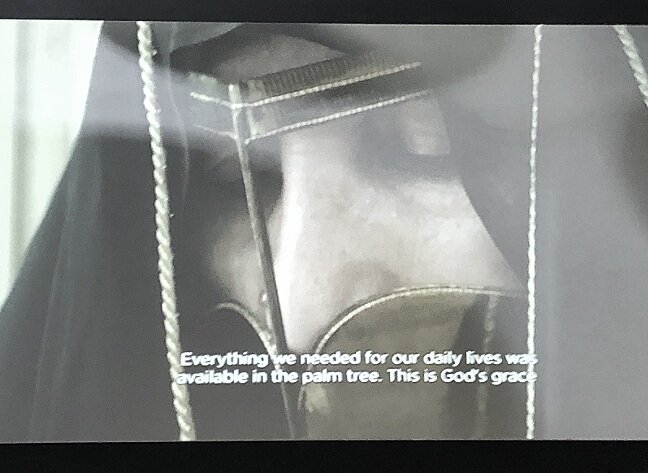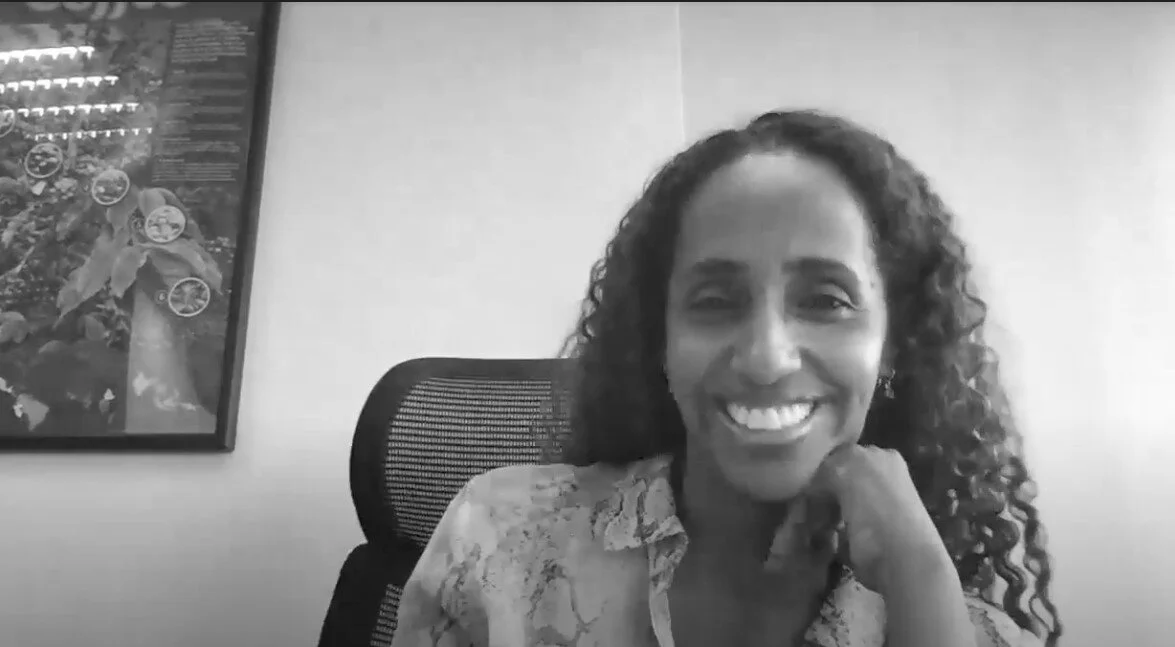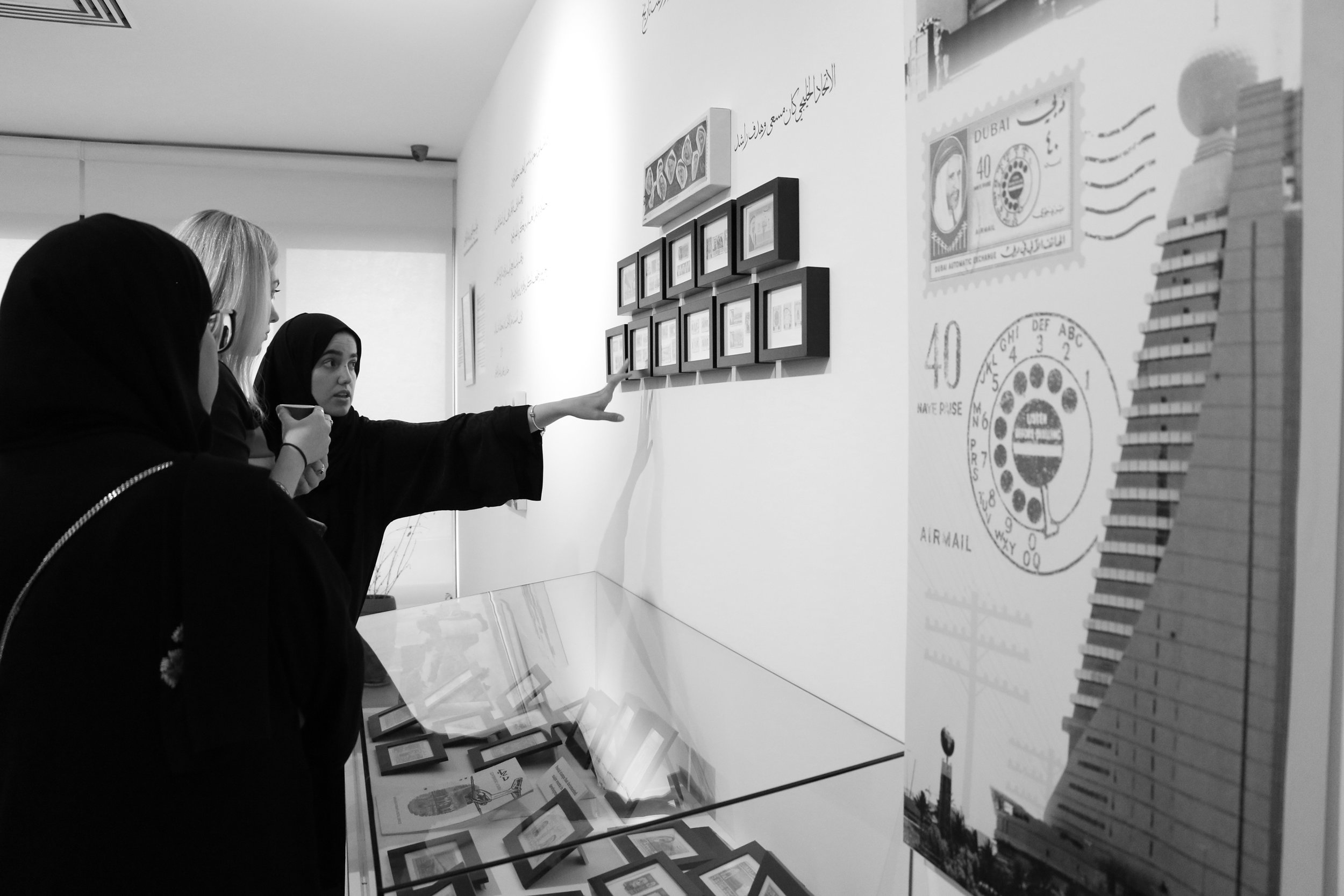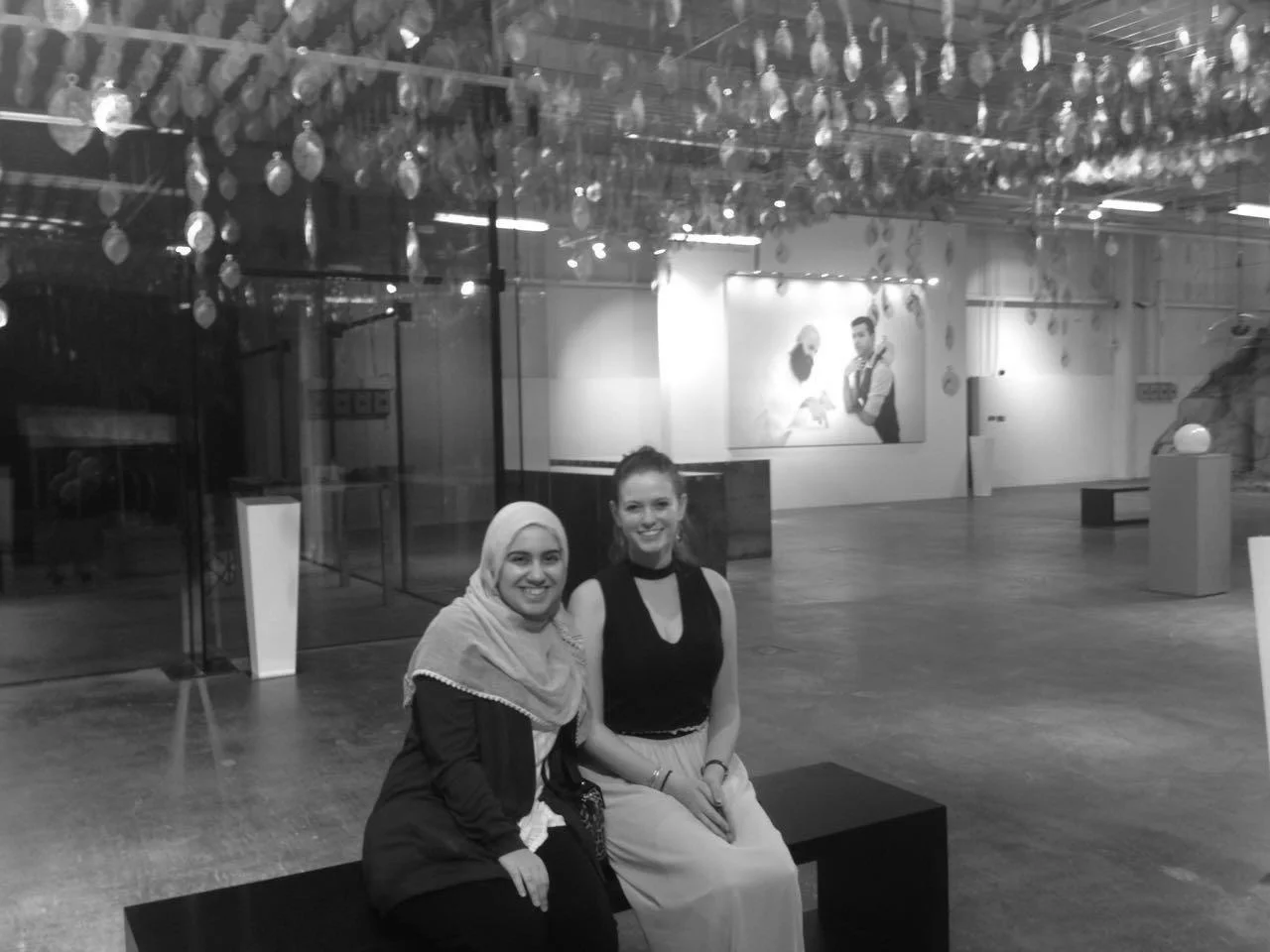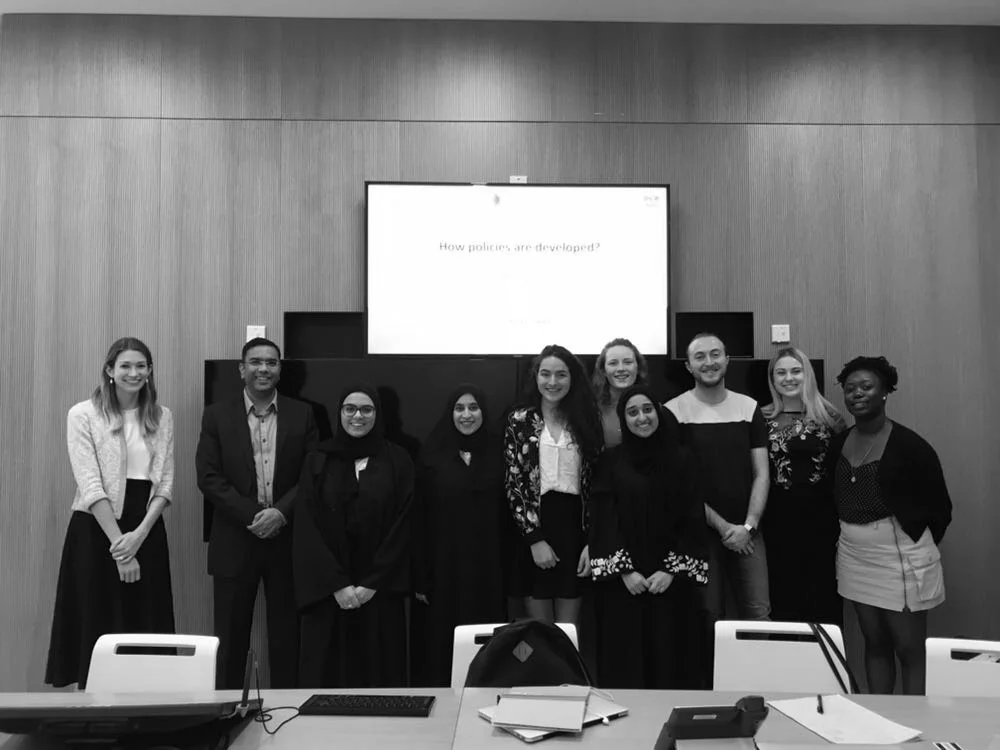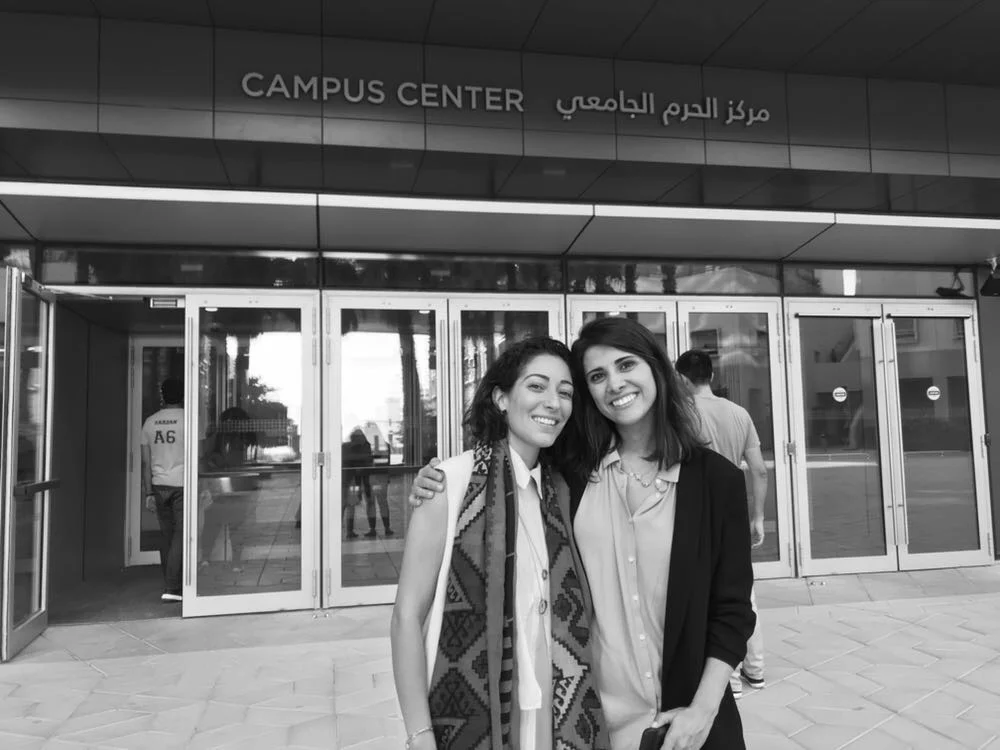Community Engagement
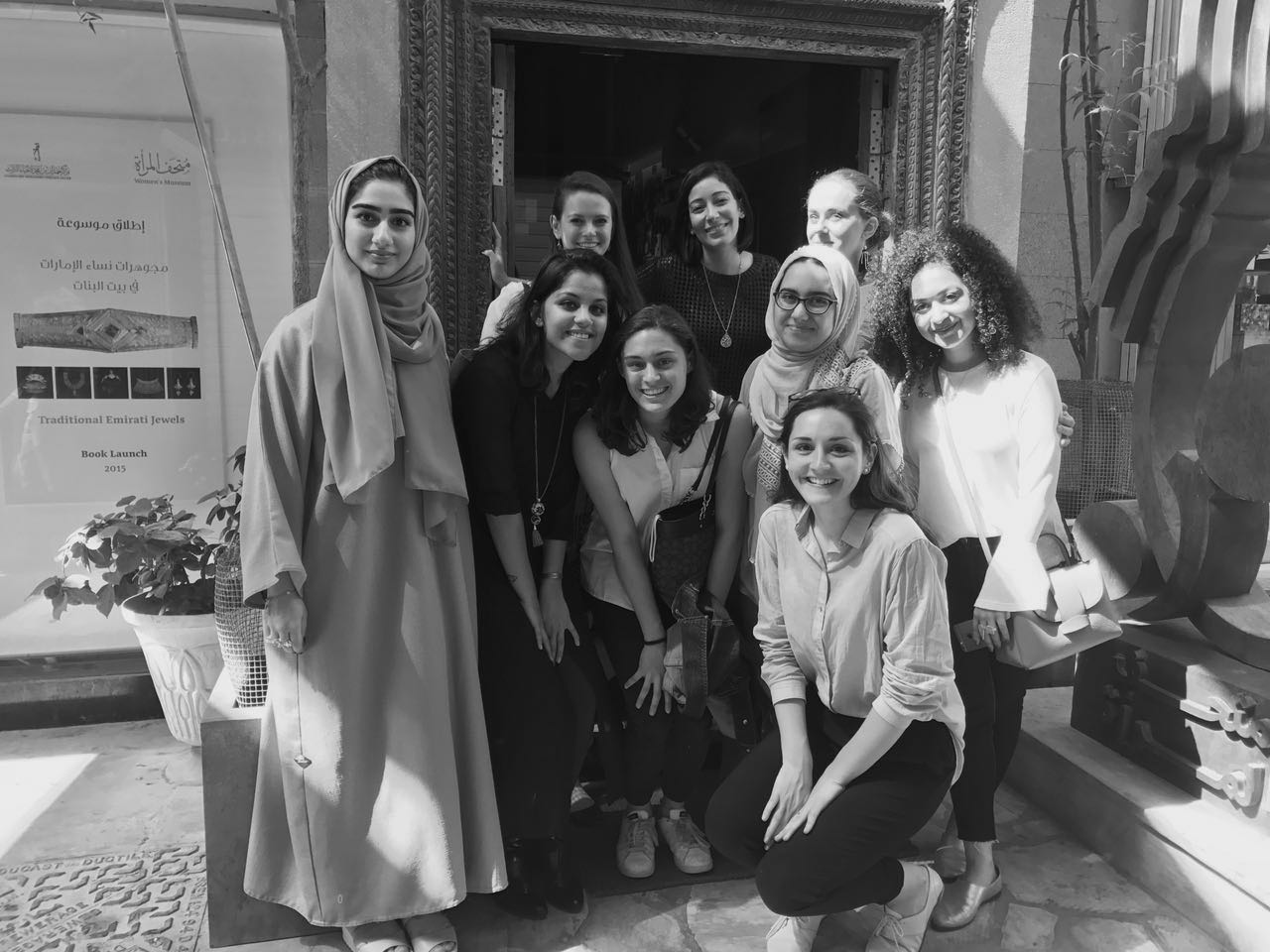
In all my classes, I try to foster connections and collaborations with the communities beyond our campus. For example, in Women and Work in the Gulf, students interact with a select group of academics, activists, and policymakers whose work is concerned with women’s employment in the GCC. Meeting the authors of scholarly papers and policy reports and the architects and critics of policy programs is a unique opportunity to engage with course material in a more in-depth fashion and reflect on how knowledge is produced about a region and its people. The following are a few examples of people and places we have engaged with.
Ras al Khaimah
We were hosted by Al-Qasimi Foundation in Ras Al Khaimah to learn about the reverse gender gap in education in the UAE.
Dubai
At Jameel Arts Centre, the recently opened contemporary arts institution, we had a moderated discussion with Uns Kattan, Program Manager, about what it means to be a foundation that is open to the public in Dubai.
Sharjah
During our trip to Sharjah, Mahnaz Fancy, Senior Program Officer at Sharjah Architecture Triennial, walked us through the Sharjah Architecture Triennial exhibition curated by Adrian Lahoud titled “The Rights of Future Generations”.
Abu Dhabi
During this trip, we toured Qasr Al Hosn, the oldest building in the city of Abu Dhabi which belonged to the ruling Al Nahyan family.
Dubai
Can malls be understood as anything more than bastions of capitalist consumption? We travelled to Mall of the Emirates and walked around to observe the activities that take place in the mall and reflect on our own embodied experience of walking through the different spaces in it.
Dubai
What does it mean to make home and work in the context of an emergent global city? We met with Jumana Darwish, founder of Happy Box UAE, in Barsha park, a public park in the center of Dubai.
Dubai
Our class traveled to Dubai to explore the first ever Women’s Pavilion at the Dubai Expo 2020.
Abu Dhabi
Turning to the ways in which boys and men are implicated in policy discourses and practices often focused on women’s empowerment and work, we received Natasha Ridge, Executive Director of Sheikh Saud Bin Saqr Al Qasimi Foundation for Policy Research, in our classroom.
Dubai
At Jameel Arts Centre the class took a tour of a series of women artists’ curated rooms, and of the inaugural exhibition Crude, which takes oil as an entrance into the complex histories of social and economic interconnections within and beyond the GCC.
Sharjah
Visiting Sharjah and meeting with Mahnaz Fancy, Senior Program Officer at Sharjah Architecture Triennial, students had the chance to critically engage with the UAE’s built environment.
Abu Dhabi
Touring the Roads of Arabia provided grounds for class discussion of both the exhibition’s content and curation.
Riyadh-Abu Dhabi
The class had a chance to discuss how women’s mobility features large in discourses around women’s work in the GCC and particularly Saudi Arabia with Jawaher Al Sudairy, Director of the recently created Center for Research at Al Nahda Foundation
Abu Dhabi
Our visit to the General Women’s Union—a federal body, founded in 1975, documenting and promoting women’s empowerment and entrepreneurship in the UAE—allowed students to witness forms of state feminism in action.
Dubai
H.E. Shamsa Saleh spoke to our class and other invited guests about the work she and the establishment have done to improve gender balance in and beyond Dubai.
Dubai
After gaining a bird’s-eye view of women’s work—from reading sociological texts on elites, policy reports, and visiting the Federal Authority for Government Human Resources—the class transitioned from statistics to the home studio of Daneh Bouahmed, a Dubai-based Saudi designer.
Dubai
At FAHR, the government entity that monitors the composition of the federal government workforce, students engaged in a lively conversation with H.E. Aisha Khalifa Al Suwaidi.
Dubai
Orit Mohammed, the founder and CEO of Boon Coffee shared her life journey with students starting with her formative years in Ethiopia, moving to the US for education, and then the UAE at a later in her life.
Dubai
Established in 2015, the UAE Gender Balance Council is responsible for developing and implementing the country’s “gender balance” agenda. The federal entity's primary objectives include reducing the country’s gender gap, empowering women across all sectors and increasing the UAE’s global competitiveness in gender equality.
Dubai
How is the story of the UAE told and by whom? Our Spring and Fall Semester classes traveled to Dubai to explore the history of the UAE through the stories of Emirati women at the Women’s Museum.Students were led on an intimate tour of the exhibitions and learned about the museum’s founder, Dr. Rafia Ghubash, and her vision to create a space in the UAE that showcased the “intellectual role women play in education, economics and politics”.
Dubai
During her virtual class talk, Farah Al Qasimi discussed her recent commission, which explored the invisible labor of women in the cycle of creation and consumption. She also elaborated on her engagement with public response to her current and past exhibits, which furthered student understanding of reflexivity in art creation and knowledge production more broadly.
Saudi Arabia/UAE
Born and raised in the Eastern Province of Saudi Arabia, Manal Al Dowayan is a contemporary artist whose work focuses on the state of Saudi women and their representation. In her virtual class visit, Al Dowayan spoke about her most recent projects: the “Tree of Guardians”, which was later installed in Abu Dhabi’s Warehouse421, and “Crash”, which "explores the phenomena of women teachers from Saudi Arabia appointed to teach in remote village across the country [who] are dying in gruesome car crashes” (Al Dowayan, 2014).
Dubai
Statistics play a major role in the formation of UAE public policy as well as the country’s ranking in a variety of international development indices. This semester, the Women and Work in the Gulf class had the opportunity to meet with H.E. Abdulla Lootah and other senior officials from the Federal Competitiveness and Statistics Authority (FCSA) to learn more about the data collection process in the UAE at the federal and local levels.
UAE
This semester, we had the honor of hosting H.E. Aisha Al-Suwaidi for a discussion on how public policies are shaped in the UAE. Specifically tailored to the Women and Work in the Gulf course, Al-Suwaidi presented a case study on work/life balance policy initiatives— most notably the recent introduction of extended maternity leave in the country.
KSA
Our next class speaker, Jawaher Al-Sudairy, is the Senior Program Manager for the Harvard Kennedy School collaboration with the KSA Ministry of Labor on women’s employment. Al-Sudairy illustrated the ways that gender intersects with mobility on technical, organizational and policy levels in the Kingdom.
Abu Dhabi
For our final community learning experience this fall, we invited Saba Brelvi to share her experience running an NYUAD program centered on the ethical employment of domestic workers by faculty and staff. Brelvi’s background in public health combined with her personal experiences with the domestic worker program allowed students to dive deeper into the complexities of domestic labor, which was the focus of our final class readings.




